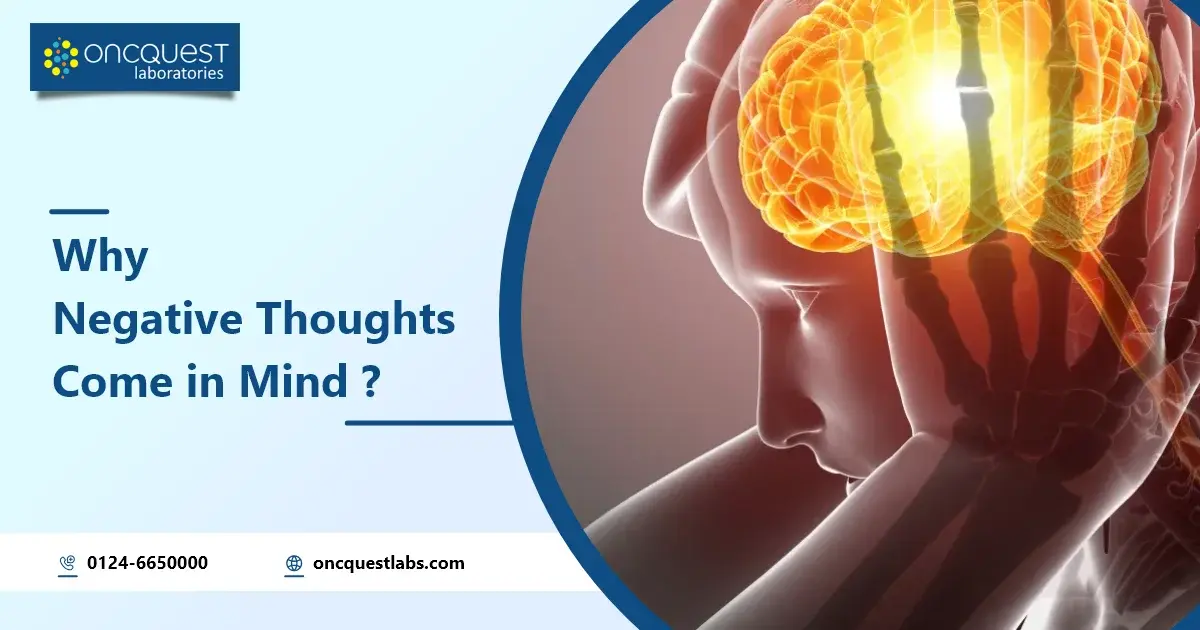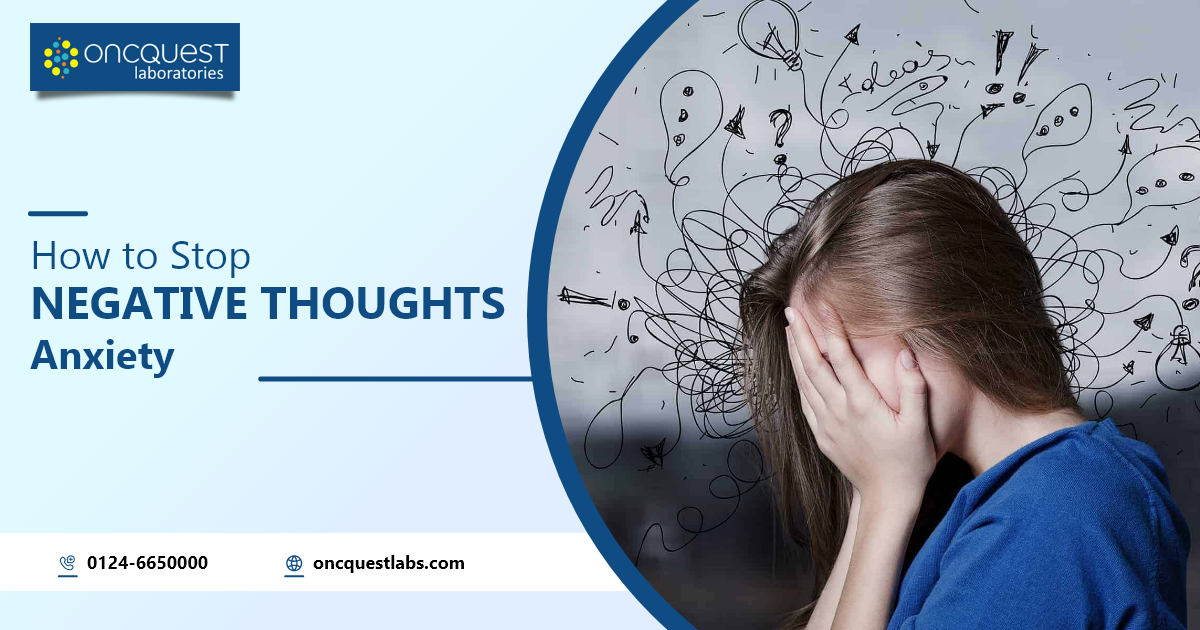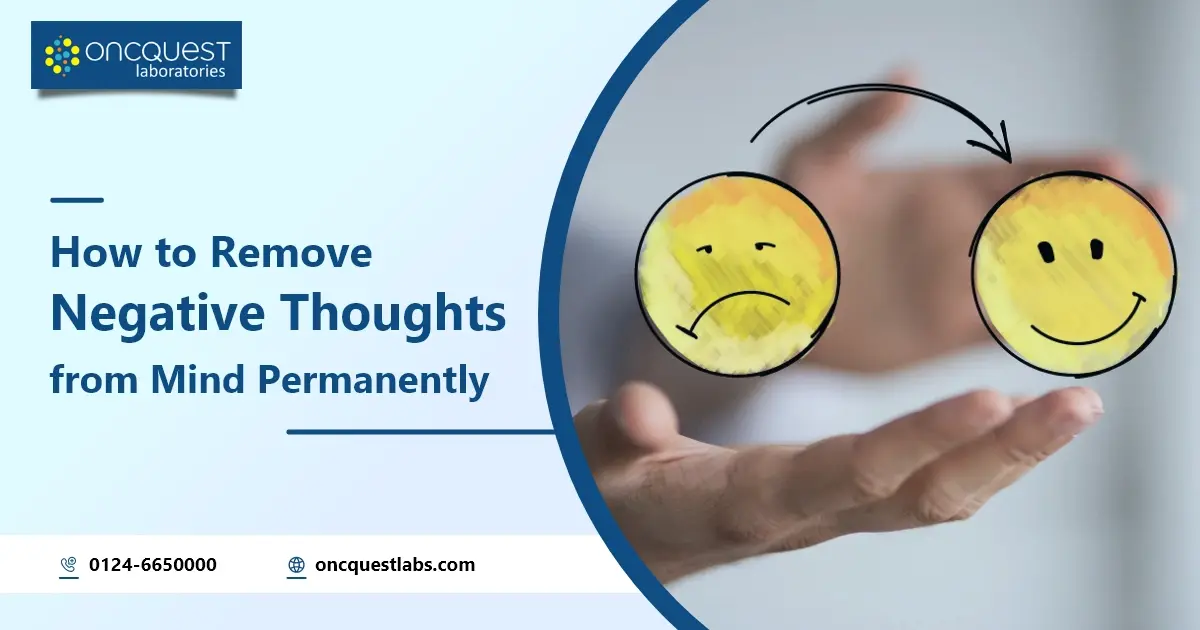Negative thoughts are an integral part of the human psyche, and they can manifest in a variety of ways. Understanding the root causes of these thoughts and learning how to effectively manage and overcome them is crucial for maintaining mental well-being. In this blog, we will delve deeper into the reasons behind negative thoughts and explore practical strategies to address them.
Contents
Who experiences negative thoughts?
Negative thoughts can occur in the minds of virtually anyone. They are a common aspect of the human experience, and nearly everyone will experience negative thoughts at some point in their lives. These thoughts can be triggered by various factors, including stress, anxiety, past experiences, self-criticism, and many other sources. It’s important to remember that having negative thoughts is normal, but how individuals manage and respond to these thoughts can vary. Developing strategies to cope with and counteract negative thoughts is essential for maintaining good mental health and well-being.
Reasons why negative thoughts come in mind
1. Evolutionary Survival Mechanism:
Our brains have a built-in survival mechanism that triggers negative thoughts like worry and fear. This mechanism helped our ancestors stay alive by keeping them cautious and alert to potential dangers. Even though our world has changed, our brains still have this tendency to focus on possible threats. This is why we often have negative thoughts – it’s a way our minds try to keep us safe, even in modern times.
2. Cognitive Biases:
Our brains often pay more attention to bad things than good things. This is called the “negativity bias.” It’s like our brain’s way of being extra cautious because a long time ago, our ancestors needed to watch out for dangers to stay safe.
The negativity bias affects how we see the world. We worry more about problems and don’t notice good things as much. This can make us feel stressed and sad, and we may remember bad stuff more easily. It can also make us choose things just to avoid bad stuff, even if it stops us from doing good things.
Media like the news knows about the negativity bias, so they show bad stuff more. This can make us think the world is scarier than it really is.
But, we can do things to balance this bias. We can try mindfulness, think about good things, talk to someone if we feel bad, and watch what we read and see. We can also look at our thoughts and be more positive. Even though we all have the negativity bias, we can learn to be more positive and see the good things in life. It’s like training our brains to focus on the bright side of things.
3. Stress and Anxiety:
Sometimes, when we’re stressed or anxious, we start thinking about bad things a lot. This happens because our brain gets ready to deal with problems. If we’re very stressed, it can turn into anxiety, where we worry a lot about bad things happening. This makes us think in a negative way. We might imagine the worst possible things, think about our problems over and over, and believe bad things are going to happen for sure.
Stress and anxiety also make our bodies feel bad with things like a fast heart and tense muscles. This can create more negative thoughts, making us even more stressed and anxious.
But there are ways to handle this. We can do things like exercise, relax, and think positively to reduce stress. Talking to someone or a therapist can help too. In severe cases, a doctor may prescribe medicine to help.
The important thing is to understand how stress and anxiety can make us think negatively and then use strategies to feel better. This way, we can have a more positive and balanced outlook on life.
4. Past Experiences:
Think of the past like a big book filled with your life’s stories. Sometimes, those stories are sad or hard to bear, like when something really scary or upsetting happened. These tough memories can stick with us, and when something today reminds us of those old stories, it can bring back all those sad feelings. It’s like the past comes back to haunt our thoughts, and those thoughts can be really negative.
For instance, if you once failed at something, that memory might come back when you try something new, making you think you’ll fail again. But there are ways to deal with this. Talking to someone you trust or a professional can help. You can also practice mindfulness to stay focused on the present, and create new, positive experiences to balance out the old ones. This way, you can make those past memories less scary and have a happier outlook on life.
5. Social and Media Influence:
Social media and the news often show us many sad and worrying things. This can make us feel worried and compare ourselves to others. It can even make us keep having sad thoughts. But there are ways to feel better:
1. Know that the news and social media sometimes show things in a way that makes them seem worse than they are.
2. Don’t spend too much time on social media and news.
3. Follow accounts that share happy and fair information.
4. Think about how social media and news make you feel, and take a break if you need to.
5. Try to learn from different people, not just the ones who are the same as you.
6. Spend time with real friends and do fun things.
7. Be nice to yourself and know that what you see online isn’t always how things really are.
Understanding how these things affect your thoughts is the first step in feeling happier and thinking more positively.
6. Perfectionism:
Perfectionism is when you always want to be perfect and have very high standards. It’s not good for your mind. You feel a lot of pressure to be perfect and you’re scared of making mistakes. This makes you talk to yourself in a bad way and feel anxious, stressed, or even sad. It can also make it hard to get along with people and can make you delay doing things because you’re scared of not doing them perfectly. It’s not good for your body and mind because it makes you very stressed.
But, there’s hope! You can get out of the perfectionism trap. You can try setting realistic goals, being kind to yourself, and not thinking everything is either perfect or a failure. It’s important to get help and support from friends and use mindfulness to stay calm. You should also learn to set boundaries, be proud of your achievements, and be happy when you’re getting better, not just when you’re perfect. It takes time, but with help and not giving up, you can feel better and have a healthier mind.
7. Lack of Self-Compassion:
Sometimes, we are very hard on ourselves, and we don’t treat ourselves kindly. This can lead to thinking negative things about ourselves. But imagine if we treated ourselves as we would treat a friend who made a mistake or had a tough time. We would be understanding and comforting, right? This is what self-compassion is all about.
When we lack self-compassion, we become too critical of ourselves, set very high standards, and blame ourselves when we don’t meet them. This can make us feel like we’re not good enough.
This self-criticism can lead to negative thoughts that can harm our self-esteem and make us feel sad or anxious. But by practicing self-compassion, we can be kinder to ourselves, remember that everyone makes mistakes, and be present with our thoughts and feelings without being judgmental.
Being kind to ourselves can have a big positive impact on our mental well-being. It can make our negative self-talk less intense, improve our self-esteem, and help us manage our emotions better. It doesn’t mean we’re excusing bad behavior, but it gives us the strength to learn and grow from our mistakes.
If negative self-talk and a lack of self-compassion cause us a lot of emotional pain, it’s a good idea to talk to a therapist or counselor who can help us. So, remember, treating ourselves with the same kindness we’d show a friend is an important step to feeling better about ourselves and having a more positive self-image.
8. Chemical Imbalances:
Sometimes, negative thoughts can be influenced by underlying chemical imbalances in the brain, such as in cases of clinical depression or anxiety disorders. Seek professional help if you suspect a chemical imbalance.
Strategies to Manage Negative Thoughts
1. Mindfulness and Meditation: Practicing mindfulness can help you observe your thoughts without judgment and reduce their impact.
2. Cognitive Behavioral Therapy (CBT): CBT is a therapeutic approach that helps identify and challenge negative thought patterns.
3. Positive Affirmations: Replacing negative thoughts with positive affirmations can be a powerful tool to shift your mindset.
4. Social Support: Talking to friends, family, or a therapist about your negative thoughts can provide valuable perspectives and emotional support.
5. Healthy Lifestyle: Adequate sleep, regular exercise, and a balanced diet can positively impact your mental state.
6. Limiting Media Exposure: Reducing exposure to negative content in the media can help in managing the influx of negative thoughts.
7. Self-Care: Engage in activities that promote self-care and relaxation, such as hobbies, reading, or spending time in nature.
Remember that negative thoughts are a common human experience, but they don’t define you. By understanding their origins and employing coping strategies, you can take control of your thought patterns and cultivate a more positive mindset. If negative thoughts persist and interfere with your daily life, seeking professional help is a crucial step towards better mental well-being.
Conclusion
In conclusion, negative thoughts are a natural part of the human experience and can be triggered by various factors such as stress, anxiety, past experiences, and self-criticism. While these thoughts are common, how we manage and respond to them is crucial for our mental well-being. Developing strategies to cope with and counteract negative thoughts is essential. Remember that it’s normal to have negative thoughts, but by practicing mindfulness, seeking support, and fostering self-compassion, we can navigate these thoughts and strive for a more positive and balanced outlook on life. It’s a journey toward better mental health and a happier, more resilient self.
Frequently asked Questions
Q1: What is the main cause of negative thinking?
A1: Negative thinking can be rooted in various causes, with personal factors like experiencing trauma being one of them. Additionally, researchers are uncovering links between certain mental health conditions and the consistent emergence of pessimistic or gloomy thoughts.
Q2: Why do I automatically think negative thoughts?
A2: As per social cognitive theory, a person’s tendency to engage in negative thought processes is typically dormant. Nonetheless, when confronted with stressful life events, this system can be triggered, influencing how individuals perceive life events and leading to automatic negative thoughts and emotional distress.
Q3: What is negative thinking called?
A3: Rumination is a process where individuals repetitively think about and dwell on negative emotions, their origins, and the outcomes they bring. This recurring and negative nature of rumination can be a factor in the onset of depression or anxiety and can also exacerbate pre-existing conditions.





